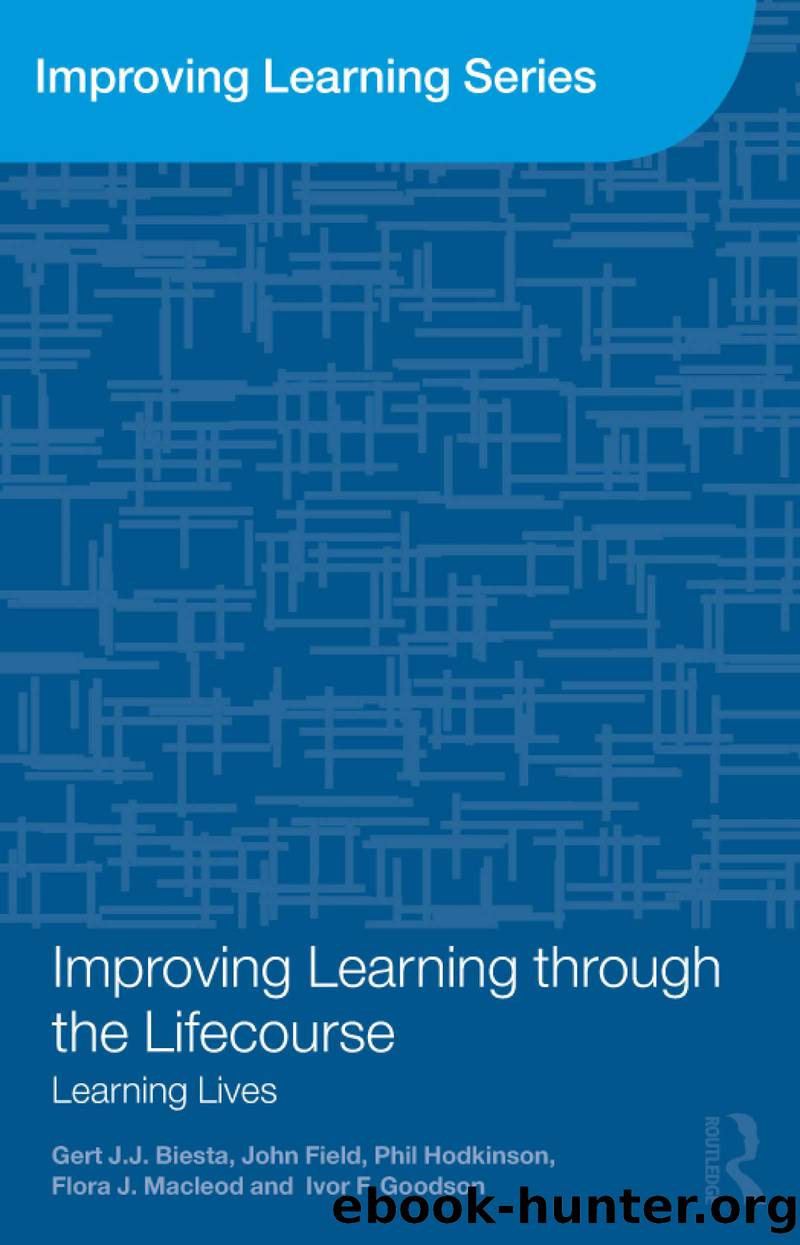Improving Learning Through the Lifecourse by unknow

Author:unknow
Language: eng
Format: epub
Publisher: Taylor & Francis Group
Published: 2022-06-04T00:00:00+00:00
Russell Jackson
Russell was aged 53 when we first met, and a married man. He identified with the part of the country where he was born and has a strong local accent. He was a willing interviewee, someone with strong views and deep emotions to express, and someone accustomed to self-evaluation. He often referred to himself in humorous, slightly self-deprecating terms. His was a first person narrative, a candid account of actions and decisions that he took and of events over which it would seem he had no control, such as a conversion experience that set him out on a trajectory of becoming a priest. He was not only able to describe key events in his life but also to elaborate on their significance and meaning for him. It was quickly apparent that reflection on experience was a central feature of Russell's narrative, something he undertook in the interviews and also reported happening at other times and in other places in his life. Russell's stories were thus characterised by a high level of narrative intensity. They were detailed and elaborate and more on the analytical and evaluative than descriptive end of the spectrum. In this regard they were quite similar to the stories told by Christopher and Paul Larsen.
Russell's stories were characterised by the presence of a strong plot. The plot of his life story was his âcore identityâ of being a priest, which, for Russell, signified the crucial importance of wanting to make a contribution to the well-being of others. Although in one respect Russell recounted his life in a chronological order, the identity of being a priest was the centre from which all events in his life gained their meaning. It also provided the criterion against which all events in his life were evaluated. With each aspect of Russell's life story there was always the question â sometimes explicitly posed, sometimes more implicitly alluded to â how it either brought him closer to this core identity or moved him further away from it. The plot in Russell's narrative thus not only served as an organising principle; at the very same time it functioned as an evaluative and justificatory principle.
Recognition of the central importance of this plot was clearly something that he had learned from his life â through a complex process of experience, reflection, communication and interaction â and it was something that not only had significant impact on his life as an âeventâ (it led, for example, to his decision to give up his job, sell his house and train as a priest); it also had a significant impact on the perception of his life and hence on the way in which he was able to make sense of his life and of himself. Russell's narrative is not simply a descriptive account of a succession of life events. It has a strong evaluative character in that life events are positioned and evaluated in relation to what is most central and most important for him.
When we ask what kind
Download
This site does not store any files on its server. We only index and link to content provided by other sites. Please contact the content providers to delete copyright contents if any and email us, we'll remove relevant links or contents immediately.
The Art of Coaching Workbook by Elena Aguilar(51198)
Trainspotting by Irvine Welsh(21663)
The Secret History by Donna Tartt(19085)
Twilight of the Idols With the Antichrist and Ecce Homo by Friedrich Nietzsche(18632)
All the Missing Girls by Megan Miranda(16023)
Cat's cradle by Kurt Vonnegut(15351)
Ready Player One by Cline Ernest(14675)
Talking to Strangers by Malcolm Gladwell(13370)
Fangirl by Rainbow Rowell(9249)
The remains of the day by Kazuo Ishiguro(8998)
The Compound Effect by Darren Hardy(8965)
Thirteen Reasons Why by Jay Asher(8909)
Tools of Titans by Timothy Ferriss(8393)
Periodization Training for Sports by Tudor Bompa(8271)
Wonder by R. J. Palacio(8109)
The Lover by Duras Marguerite(7901)
A Court of Wings and Ruin by Sarah J. Maas(7844)
Change Your Questions, Change Your Life by Marilee Adams(7780)
The Complete Stick Figure Physics Tutorials by Allen Sarah(7372)
